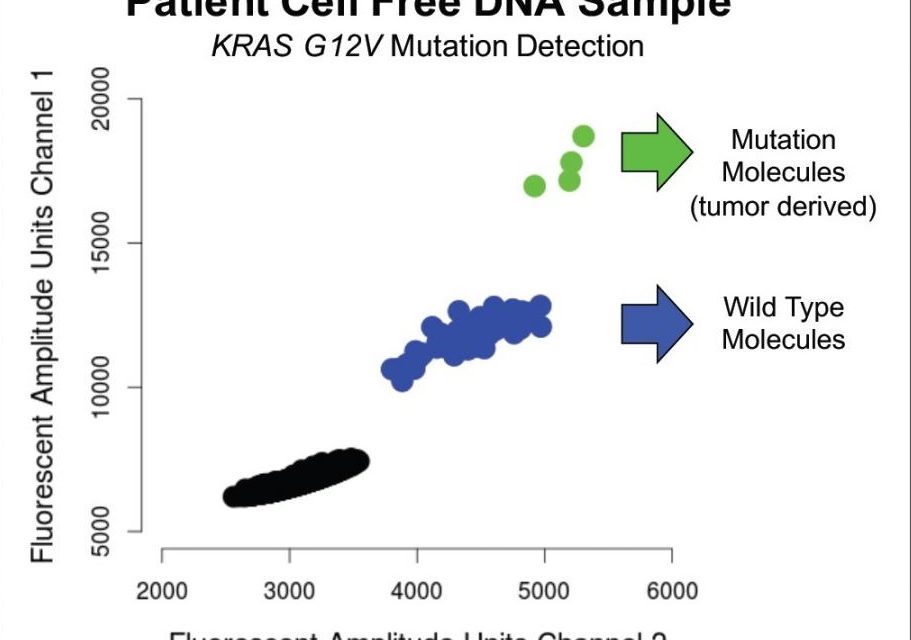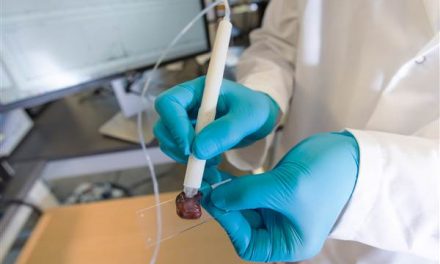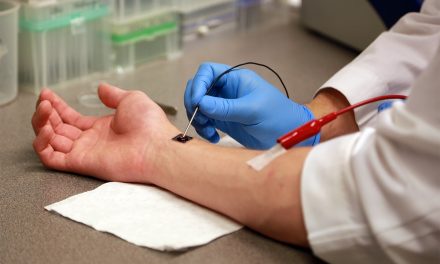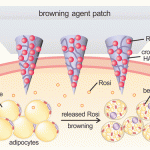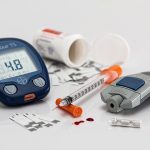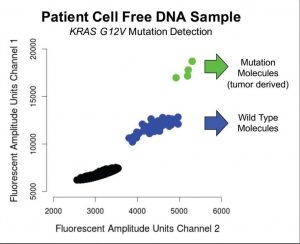
This image shows how the test can be used clinically. In this patient, the data enabled the investigators to count the number of DNA molecules containing the KRAS G12V mutation and, therefore, count the number of molecules that came from the patient’s tumor. The green dots represent molecules found to contain the mutation sequence, and the blue dots represent wild-type normal DNA molecules. The information was derived from less than a nanogram of cell-free DNA. Credit: Hanlee P. Ji
Scientists from Stanford University have developed a new blood test, that could be a game changer for doctors to monitor and detect early stage cancers. The paper published in The Journal of Molecular Diagnostics, describes how the cancer test referred to as a single color digital PCR only needs very small blood draw sample. The highly sensitive test can detect at least three mutation-bearing molecules in a single reaction. The blood test is designed in such a way that it can be customized, so it recognizes mutations unique to individual cancers.
The current blood tests available for doctors to monitor their patients are limited to only certain types of cancers. Therefore nearly all cancer patients must be monitored by expensive and time-consuming whole body image scanning. Lead investigator Hanlee P. Ji, MD, Associate Professor in the Department of Medicine at Stanford University and Senior Associate Director of the Stanford Genome Technology Center explained: “In contrast, molecular tests like the one we have developed will enable patients to be monitored at every visit, and thus have the potential for quickly tracking cancer growth and spread. Moreover, the test’s rapid turnaround and relatively low cost, especially compared to next-generation DNA sequencing, provide a potential opportunity for universal monitoring of more patients than is currently done.”

